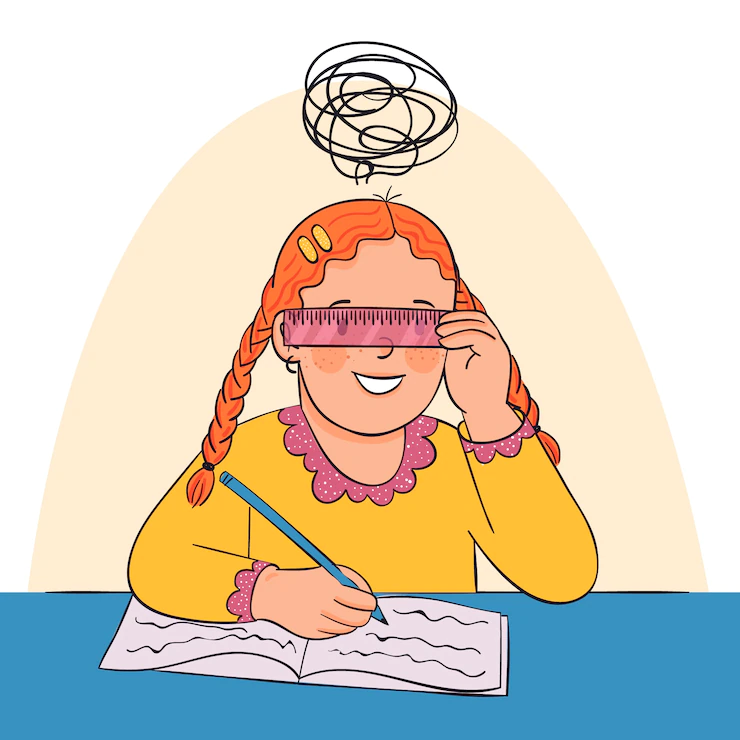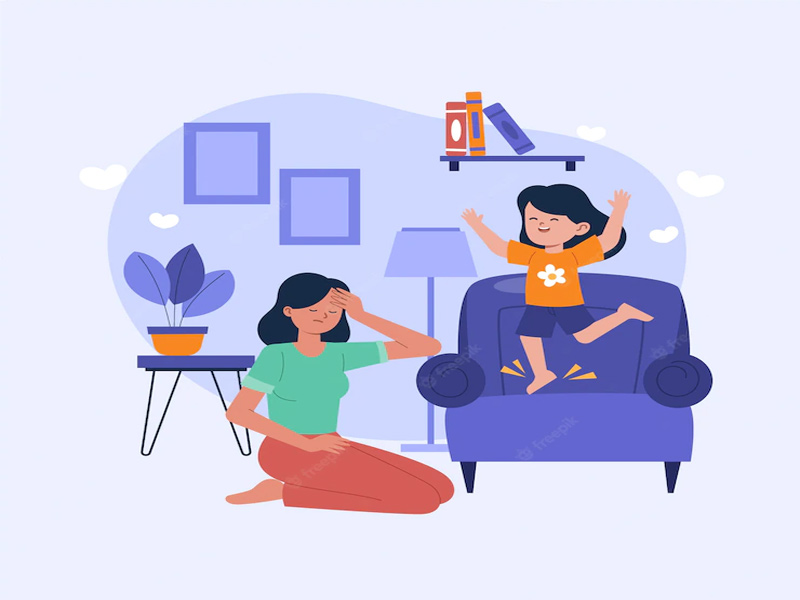Attention Deficit Hyperactive Disorder (ADHD) is one of the most common childhood mental disorders. This problem usually first appears in childhood and is often diagnosed as continuing. Children with ADHD may have difficulty paying attention and controlling their behaviors and act without thinking about the consequences of the behaviors.
What are the signs and symptoms of attention deficit hyperactivity disorder?
ADHD symptoms can range from inattention to hyperactivity. It is normal for children to have difficulty concentrating sometimes, but children with ADHD face this problem continuously. These symptoms can be severe and cause problems for them at school, at home, and in relationships with their friends.
Based on category of symptoms is stronger in a person, we categorize ADHD into three different types:
Inattentive: In this type of disorder, it is difficult for our child to regularly do and finish a task, pay attention to details or follow instructions. His attention is easily distracted or he forgets the details of his daily tasks.
Hyperactive-impulsive (Impulsive/Hyperactive): In hyperactive-impulsive type, our child is restless and talks a lot. It is difficult for him to sit for long periods of time (for example, to eat or when doing homework). Younger children may constantly run, jump, or climb.
In this type of ADHD disorder, the child feels restless and has no control over his behavior. May interrupt others or speak at inappropriate times. He has a hard time taking turns or listening to instructions. Children with impulsivity may experience more harm and physical injury than others.
Combined: In this case, the symptoms of both types above are equally present in our child.
Note that symptoms can change over time.

Causes of attention deficit hyperactivity disorder
The studies conducted do not confirm the influence of things such as high sugar consumption, watching too much TV, social and environmental factors such as poverty or family problems in the development of ADHD. Indeed, these factors can increase the severity of symptoms, but the evidence is not strong enough to conclude that these are the factors causing ADHD.
What is the difference between a normal person and a person with ADHD?
Almost everyone has symptoms similar to this disorder at some point in their lives. If your problems are new or have occurred occasionally in the past, you may not have this disorder. ADHD disorder is diagnosed only when its symptoms are severe and acute enough to cause many problems in a person’s daily life. These persistent and destructive symptoms can be rooted in a person’s past and childhood. Diagnosing this disorder in adults is a bit difficult because some of the specific symptoms of this disorder are similar to others. For example, a person suffering from this disorder may have anxiety or mood disorder. Most adults with ADHD also have other mental health problems, such as depression or anxiety.
Diagnosis of attention deficit hyperactivity disorder
Diagnosing a child with ADHD is done in several stages and there is no single test to diagnose it. Many other problems such as anxiety, depression, sleep problems and certain types of learning disorders can have similar symptoms. For this reason, one step in the diagnosis process includes a medical examination, including hearing and vision tests, to rule out other possible problems. A diagnosis of ADHD usually involves a checklist to assess symptoms and take a child’s history from parents, teachers, and sometimes the child himself.
Treatment of attention deficit hyperactivity disorder
In most cases, it is best to treat ADHD with a combination of behavioral therapy and drug therapy.
For preschool children (4-5 years old) with ADHD, behavioral therapy, especially education for parents, is recommended as the first treatment before medication. Which treatment works best depends on the child and his family. Children’s treatment plans include close monitoring, follow-up and, if necessary, making lifestyle changes throughout the course of treatment.
Alternative therapies:
Little research has been done on alternative therapies to reduce the symptoms of this disorder. Before using any type of alternative therapy, it is best to consult your psychiatrist or psychologist and learn about its possible risks and benefits. Some alternative therapies have been used but have not yet been fully scientifically validated and proven:
Yoga and meditation: Regular and daily practice of yoga and meditation can calm the person and help him manage the symptoms of this disorder.
Special diets: Most diets to treat this disorder include consuming foods that can reduce a person’s hyperactivity level. It is better to limit the consumption of things like coffee and sugar, as well as things like wheat, milk and eggs. Although studies have not yet found an effective link between these items and ADHD, certain diets can be helpful. If certain foods change your symptoms, it is best to eliminate them. However, before starting a diet, it is better to consult your psychiatrist or psychologist. A diet that excludes various foods may be unhealthy.
Vitamin and mineral supplements: Although certain vitamins and supplements are essential for a healthy life, there is still no evidence that these substances help to reduce the symptoms of this disorder.
Herbal supplements: Talk to your doctor about herbal supplements. There is insufficient evidence that these substances are effective. Some products may also be harmful to your health.
Useful fatty acids: These acids, such as omega-3 fatty acids, are essential for better brain function. The researches focused on the consumption of these substances.
Neurofeedback training: This type of training includes regular training sessions that focus on specific tasks. In these sessions, a device that shows brain wave patterns is also used. You can learn to keep your brain wave patterns active in the front of your brain. Although this treatment could be effective, more research is needed.

The causes and risk factors of ADHD are unknown, but current research suggests that genetics play an important role in developing the disease. The history of ADHD in family members, as well as the history of other mental disorders (such as depression, anxiety, obsession, etc.) in parents, increases the risk of ADHD in children.
In addition to genetics, other possible causes and risk factors are being investigated by researchers, such as:
- brain damage
- Exposure to environmental pollutants during pregnancy or at an early age, such as lead
- Alcohol and tobacco use during pregnancy
- Preterm delivery
- Low birth weight


